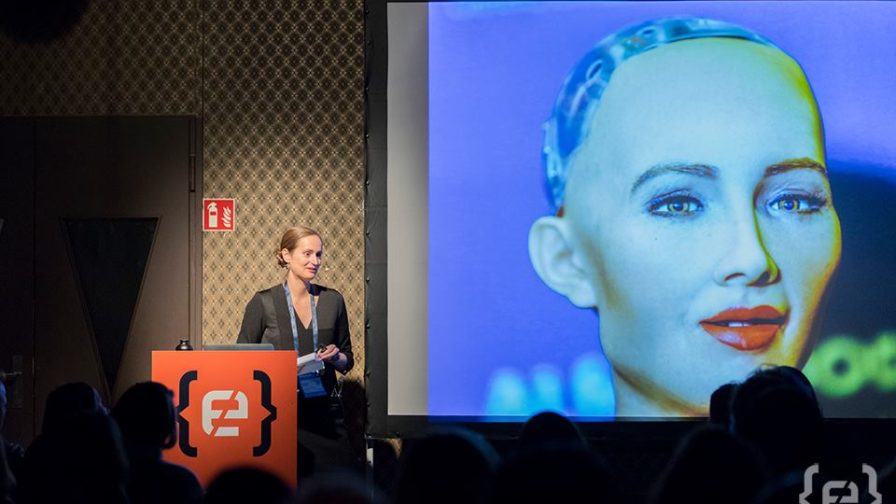
Men work hard to replace women with robots, but they are the ones to be replaced.
This memorable quote sums up Agnieszka Walorska’s controversial talk at Codemotion Berlin 2018. Her thesis is simple – AI is amazingly good at taking on jobs that are traditionally male, and incredibly bad at taking on traditional female roles. The logical endpoint of this is an increase in male unemployment and a proportional empowerment of women.
Utopian dreams
Agnieszka told us her early experiences of watching SciFi introduced her to the idea that there were alternatives to the male-dominated society we have all grown up in. She shared numerous examples ranging from Ann Leckie’s Ancillary Justice, where gender is ignored, but everyone uses female pronouns (she, her), to Herland a “lost utopian feminist novel” by Charlotte Perkins Gilman, where men have died out after women discovered a way to procreate without them.
As with much in SciFi, these examples point the way to a possible future. Not a future where men die out completely, but one where men lose their power, leading to significant changes in social structure. The trigger for this may well be AI, despite (or because of) the fact AI researchers are overwhelmingly male.
Emotionless AIs
Agnieszka played us two clips. In the first she asks Alexa for help because she isn’t feeling well. Unsurprisingly, Alexa’s responses are not very empathetic: “I’m sorry, I can’t help you with that one.” The second is a clip from the Big Bang Theory where Sheldon demonstrates an equal lack of empathy. Her point is clear. AIs currently lack the ability to empathise or care, perfectly highlighting their lack of human qualities.
Traditional male jobs are repetitive, specialised, emotionless and require specific knowledge and strength. By contrast, traditional female jobs are broad, variable, emotional, imaginative and require implicit knowledge. Clearly, AIs are really good at learning the former sort of job, but much less good at the latter.
Society suffers?
The upshot is that men are at far greater risk of losing their jobs to AIs. A perfect example is to compare truck drivers with secretaries. The 3 million truck drivers in the US, 95% of whom are male, have a risk of obsolescence of 80-100%. The 3 million secretaries, of whom 95% female, have a risk of obsolescence of about 10%. This pattern continued across all the top employment categories for men and women.
On the one hand, increased levels of male unemployment tend to reduce domestic violence. On the other hand, increased unemployment is generally regarded as a bad thing for the economy as a whole. Currently, there’s a big emphasis on getting girls at school to move into traditional male-dominated subjects in order to address the gender imbalance in IT and tech jobs. But Agnieszka suggested maybe more emphasis should be placed on teaching boys the soft skills to allow them to take on “female” roles such as nursing.
Unanswered questions
As with all good talks, Agnieszka’s presentation raised as many questions as it answered. After the talk I was inspired to read up a bit more about this. I found it’s a problem that people are well aware of. But there is no consensus on either what the specific problem is, nor on how to solve it, as this piece in the Guardian makes clear.



